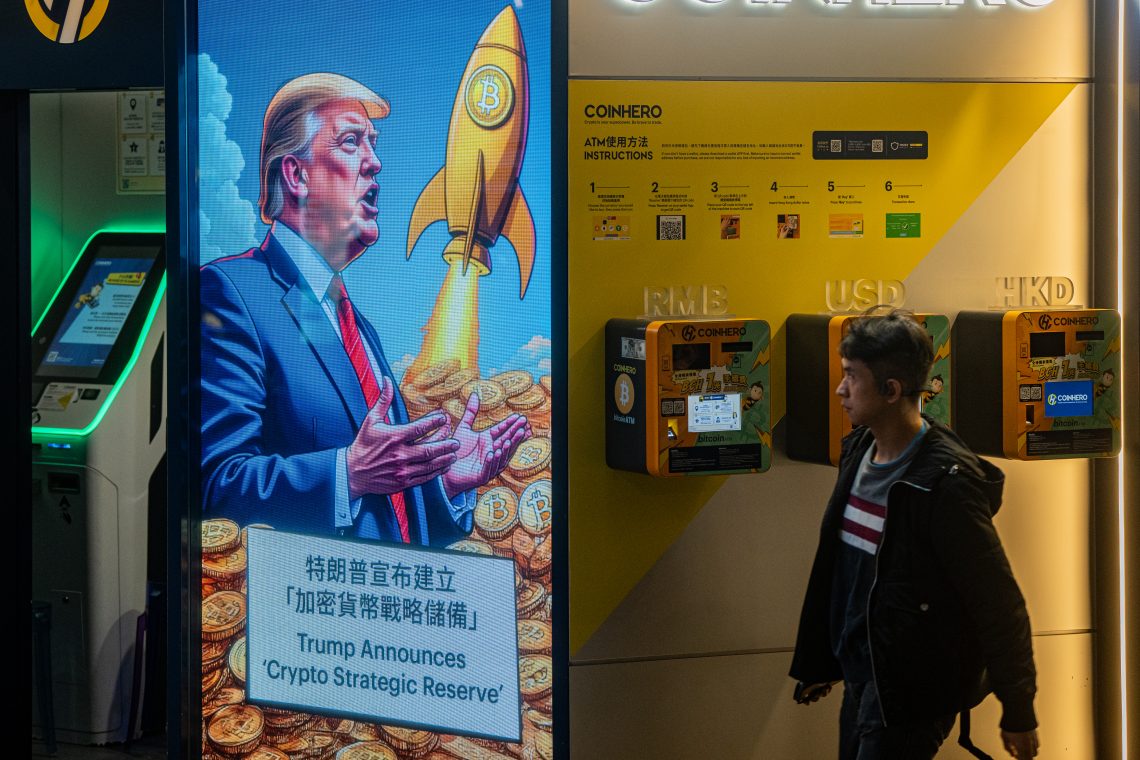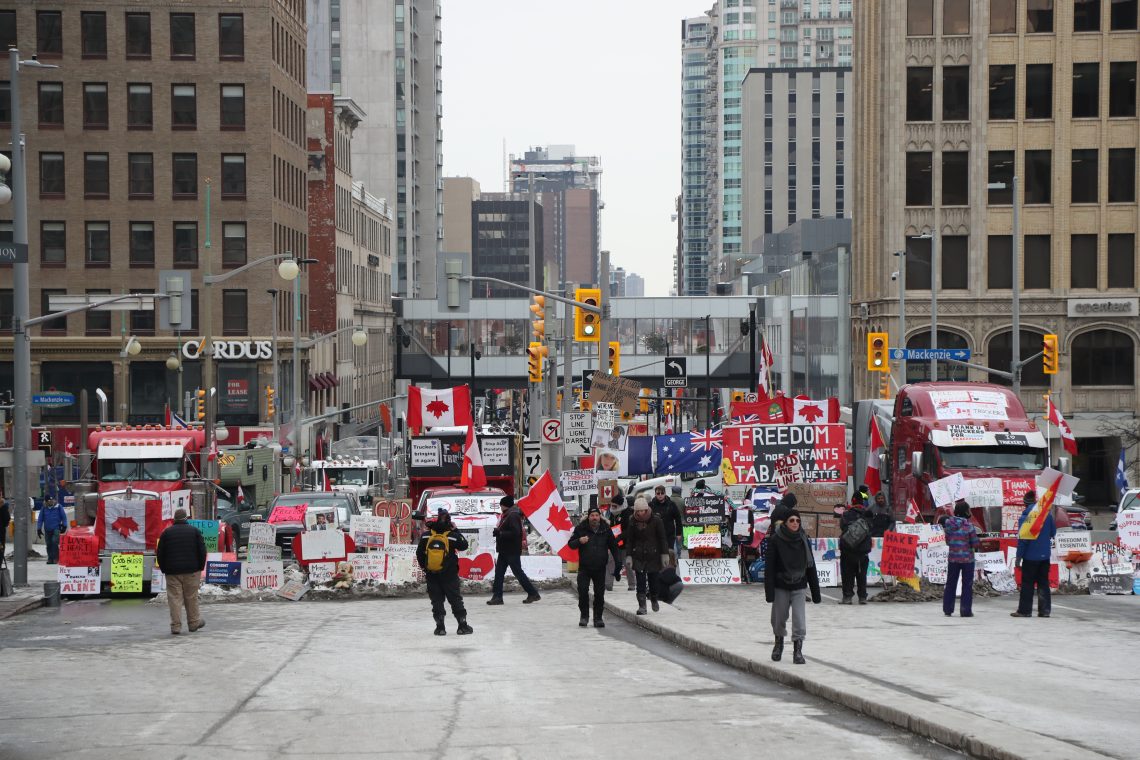Financial deplatforming turns banks
into enforcers
In an era when financial access is becoming increasingly digital, the benefits of this transition must be weighed against the risks. Convenience, efficiency and often lower expenses have certainly improved the banking experience for many customers, but at what cost?
Privacy concerns and fears regarding the future of financial sovereignty and independence are on the rise, and for good reason. Over the past decade, and especially in the years following the Covid-19 crisis, we have witnessed a growing use of financial restrictions against citizens to silence dissent. Governments and financial institutions have begun wielding their control over banking services to target and penalize individuals and organizations with controversial, or otherwise “unacceptable,” views. This practice, often referred to as financial deplatforming, undermines fundamental civil liberties, particularly freedom of speech, and it poses a grave threat to both free markets and free societies.
The challenge, however, lies in the deeper conflict that underpins this issue: the clash between private property rights and public freedom. Most banks, payment platforms and other financial service providers embroiled in this debate are private entities, which gives them the legal right to refuse service unless they are explicitly bound by antidiscrimination laws or public utility regulations. Yet, when these institutions coordinate with governments or yield to state pressure – especially under opaque conditions – this right to refuse service begins to resemble a form of policy enforcement. Consequently, banks start to look like yet another arm of the state.
The rise of financial deplatforming
There have always been legitimate reasons for banks to turn away prospective customers or to close existing accounts. They might take such actions due to perceived financial, regulatory or reputational risks to their institution. In other cases, a lack of required documentation or evidence of illegal transactions and criminal activity may force them to act. However, as recently highlighted by tech entrepreneur Marc Andreessen, the trend of deplatforming or debanking took a more ominous turn around 15 years ago.
It began during United States President Barack Obama’s administration, specifically under the directives of Operation Choke Point. This was a government initiative aimed at cutting off access to banking services for certain industries that were classified as “high-risk,” such as payday loan providers, legal marijuana businesses or equally legal firearm dealers. The program’s mission was to exert enough pressure on banks to stop doing business with these industries, to effectively ostracize them and exclude them from the financial system. Without bank accounts and no means to process credit card payments and payroll options, these businesses would be forced to operate entirely in cash, putting them in harm’s way and pushing them to the brink of failure – which happened to many of them.
The next time this trend made headlines was when it directly affected the cryptocurrency industry. Large banks had long been reluctant to do business with companies in the sector – as early as 2017, JPMorgan Chase chief executive officer Jamie Dimon even labeled Bitcoin a “fraud that will ultimately blow up.” This skepticism was arguably justified in the industry’s nascent stages, but as time passed, crypto has slowly but surely been absorbed into the mainstream.
However, following the collapse of crypto platforms like FTX and others in late 2022, a rapidly growing number of crypto businesses started experiencing extreme challenges in opening accounts. The phenomenon quickly became widespread and it did not take long for business owners and investors to accuse the U.S. federal government of deliberately trying to destroy the crypto industry by covertly cutting them out of the banking system.
After President Donald Trump took office for a second term in January, the accusations surrounding the banking sector were scrutinized. In early February, both the House Committee on Financial Services and the Senate Banking Committee held hearings on the issue, which came to be known as Operation Chokepoint 2.0. Soon thereafter, internal communications from the Federal Deposit Insurance Corporation were released, “showing the banking regulator slamming the brakes on lenders offering or considering products and services in the digital assets sector,” as CoinDesk, a news website specializing in digital currencies, reported.
There are many more examples of these practices, and they are not limited to the U.S. One of the most egregious cases emerged in Canada during the pandemic. In 2022, Canadian truckers organized protests against pandemic restrictions and vaccine mandates, quickly gaining traction and public support. In response, then Prime Minister Justin Trudeau’s government took the unprecedented step of invoking the Emergencies Act, freezing the bank accounts of protest organizers and even those of supporters who contributed to their crowdfunding efforts.
Another blatant example came from the United Kingdom. Barclays Bank and others faced severe backlash after suddenly closing accounts associated with certain political figures and organizations, most notably those of Nigel Farage, sparking concerns over ideological bias in the financial sector.
Beyond traditional banks, there have also been cases of payment processors and crowdfunding platforms that have unilaterally cut ties with individuals and groups considered controversial. For instance, PayPal has deplatformed independent media outlets and political activists under the guise of enforcing “acceptable use policies.” Earlier this year, PayPal admitted that during the height of the pandemic, it closed the account of a children’s rights campaigner after she spoke out against mandatory Covid vaccines and school closures.
A slippery slope
Those who deny the risks of financial deplatforming often emphasize the right of private institutions to refuse service, arguing that any interference with this right would amount to an assault on free market principles and the liberties of their owners and investors. However, this argument overlooks a clearly documented issue: Governments have already been pressuring private financial institutions to enforce public policies and target individual citizens, companies and even entire industries, despite these entities being law-abiding.
Facts & figures: Examples of financial deplatforming
- Proud Boys (2018-2019): The far-right group Proud Boys faced considerable financial fallout after violent incidents at their rallies. Major payment processors like PayPal and several credit card companies responded by shutting down their accounts. JPMorgan Chase closed the personal bank account of Enrique Tarrio, the group’s chairman.
- Hong Kong pro-democracy activists (2020): During the peak of the pro-democracy protests in Hong Kong, numerous banks, including HSBC, took action by freezing accounts belonging to activists and organizations. Among those affected was the Spark Alliance fund, established to support the demonstrators.
- Nigerian activists (2020): In October 2020, protests surged across Nigeria, demanding the disbandment of the Special Anti-Robbery Squad and broader police reforms. In response, authorities implemented several measures to stifle dissent, including ordering the freezing of bank accounts. The Central Bank of Nigeria instructed private banks to target specific individuals and organizations by freezing their accounts.
- Canadian trucker protesters (2022): During the Freedom Convoy protests in Canada, which opposed Covid-19 mandates, the government invoked the Emergencies Act. This action resulted in the freezing of over 200 bank accounts associated with organizers, donors and participants, some of which were affected for donations as little as $50.
- Nigel Farage (2023): Nigel Farage, the British politician and pro-Brexit figure, had his accounts closed by Coutts, a bank owned by NatWest Group. Mr. Farage asserted that this decision was linked to his political beliefs, and internal documents revealed that the bank viewed his positions as inconsistent with its values.
This governmental pressure has blurred the lines between state action and private sector discretion. Nowadays, through heightened regulatory interference and the rise of public-private partnerships, authorities can effectively “outsource” censorship and financial exclusion to banks and digital payment platforms, all without the checks and balances of democratic and legislative oversight.
This shift has laid the groundwork for the suppression of dissent and the oppression of free speech without due process. If we add the adoption of Central Bank Digital Currencies (CBDCs) – the digital form of a country’s fiat currency, regulated by its central bank – to this mix, the outlook quickly becomes truly dystopian. CBDCs could give governments direct control over digital transactions. In that case, the state can eliminate the “middle man,” allowing it to freeze accounts or impose other sanctions directly without needing banks’ cooperation.
Scenarios
What lies ahead depends on the speed at which events unfold, how quickly CBDCs are adopted and on other measures that may lead to further centralization and state control over the financial services industry.
Less likely: Rapid growth of financial deplatforming
A swift and widespread rise in financial deplatforming through CBDCs or increased pressure on banks could effectively turn citizens into economic hostages virtually overnight. This could nearly eliminate the concept of personal financial sovereignty, as savings and investments would be at the mercy of whoever happens to be in power at a given moment. Nonetheless, this remains a relatively low-probability scenario, as the level of global government coordination required appears unrealistic.
More likely: Gradual, uneven financial deplatforming sparks backlash
What seems more likely is a slower, uneven implementation that will surely trigger a serious backlash. People may lose trust in fiat currencies and turn to decentralized alternatives like Bitcoin or other private parallel digital currencies as mediums of exchange. They would likely also turn to precious metals or other real assets as stores of value.
We have already seen clear indications of this escape route, as gold continues to trade at record highs and as crypto adoption has risen following high-profile instances of financial deplatforming. The trucker protests in Canada serve as a compelling real-world example: Bitcoin donations helped both the protesters and their supporters bypass the account freezes imposed by the state and enforced by their banks.
This report was originally published here: https://www.gisreportsonline.com/r/financial-deplatforming/
































